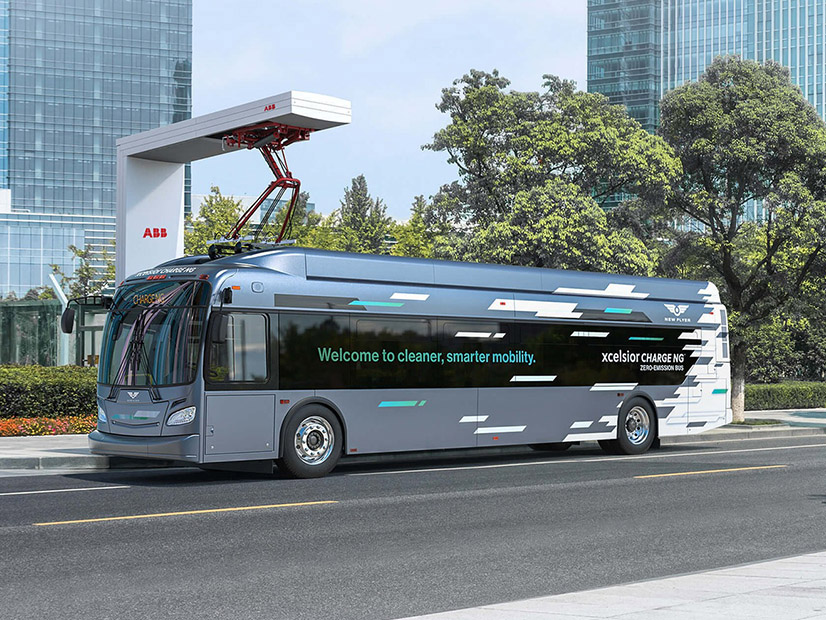
Massachusetts Gov. Charlie Baker gave testimony Tuesday for a transportation bond bill that would unlock $4.1 billion in funding from the Infrastructure Investment and Jobs Act (IIJA) signed by President Biden in November.
The bill (H.4561) would authorize the state treasurer to issue up to $5.6 billion in bonds to ensure the state can meet federal matching requirements for varying percentages of infrastructure project costs.
“We’ve developed a plan to invest billions of dollars in communities throughout the commonwealth over the next five years using the resources from [the IIJA],” Baker said. “That’s why we filed this legislation to authorize $9.7 billion to prepare for the resources and funding that will come to the commonwealth through this bill.”
Baker signed a $16 billion transportation bond bill in January 2021 that included $4.4 billion in federal funding for the next two years. At that time, Baker said, his administration expected to ask the legislature to authorize additional funding for transportation in the near term, but passage of the IIJA altered their plans.
The IIJA “increases the annual level of federal funding that goes well beyond what we had anticipated for the next five years,” Baker said.
Baker introduced the new bond bill on March 21, declaring it an emergency measure that requires action before the end of the legislative session in July. He acknowledged that the bill creates a lot of work for the legislature in a short time and will attract an “enormous amount of interest.”
Funding in the bill includes $200 million for the Executive Office of Energy and Environmental Affairs (EEA) to implement programs for public alternative fueling and EV charging stations, e-bikes, EVs for hire or sharing, and medium-duty EV trucks.
Of the total allocation for the EEA, Baker said, $150 million is set aside for investments that promote equity and improve public health, such as EV incentives for low-income families or electric school bus purchases. EEA’s remaining $50 million allocation will be used for matching funds to help the state compete for discretionary grants.
A $1.4 billion allocation to the Department of Transportation would support modernization of the transit system, including the Massachusetts Bay Transportation Authority’s (MBTA) plan to electrify its fleet of 1,100 buses by 2040. A bill (S.2292) currently before the Joint Transportation Committee would advance the deadline for MBTA’s fleet electrification to 2030. The committee has until April 29 to report that bill to the legislature.
The DOT would receive another $43.4 million from the bond bill for projects that improve regional transit networks and facilities through, among other things, rehabilitation of facilities to support clean vehicles. Facility upgrades necessary for MBTA’s full bus fleet electrification will cost $4.5 billion, according to the authority.
Additional allocations to the DOT that support the state’s climate laws include $2.8 billion for projects on the interstate and non-interstate federal highway system, including EV charging infrastructure; and $145 million for planning across all transportation modes, including supporting reduction of greenhouse gas emissions from transportation.
To help the state compete for discretionary and grant program funding in the IIJA, the bond bill includes a $3.5 billion authorization, Baker said. While the state awaits grant program guidance, he added, “it’s critical that … we have the authorizations in place so we will be able to move quickly and efficiently to deliver additional federal funding to the commonwealth.”


